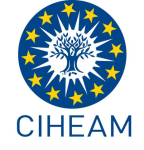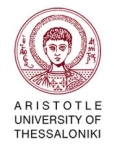Mediterranean Fruit and Vegetable (FV) supply chains are exposed to the complexity of today's global market. The European Union is a net importer of FV, which currently represents one third of all primary food commodities import value, with South Mediterranean countries representing one of the main non-EU sources for such products. Although globalization of food systems represented an important opportunity for development of the entire Mediterranean agricultural sector, it also posits considerable challenges to the actors of local economy due to high dynamics and uncertainty in supply and demand, ambiguity covering the quality of fresh products, availability of appropriate volumes in time and in a specific place. At the same time, while a strong orientation to exports is observed, it often results in supply chains inefficiencies and various externalities, such as disproportion among massive production and demand, abandonment of cultivation for the regions least equipped with logistics resources and losses ranging in some cases between 25-50% of post harvested products. This is true especially for those fragmented productive structures composed mainly by small-scale producers: on one hand they are fundamental actors responsible for local food security and employment, but on the other hand they are still not adequately linked to markets due to information gaps and asymmetries, low and geographically fragmented production volumes, remoteness and transportation costs and difficulty in meeting high food safety requirements and traceability. In addition, recently small-scale producers have also been facing unprecedent stress due to the COVID-19 pandemic since bans, trade and movement restrictions made competition on the market even more challenging for smallholders.




























